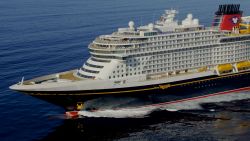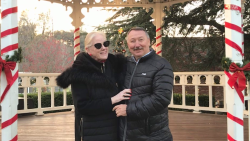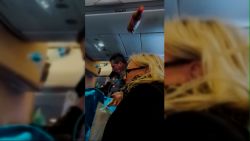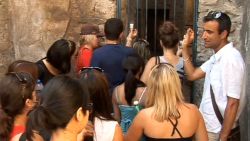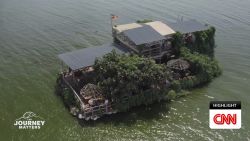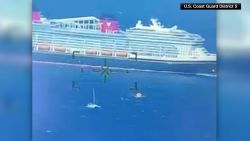Editor’s Note: The US Centers for Disease Control and Prevention offers guidance on what to consider if you decide to travel within the United States. The agency cautions that staying home is the best way to protect yourself and others from coronavirus.
Florida, as usual, has been making headlines, as coronavirus cases across the state spike as angrily as the summer heat. But even in raging pandemic times, there’s still no putting a state this diverse in a box.
On July 4, there were 11,458 new confirmed coronavirus cases in Florida – a new single-day high for the state. Some steps toward reopening are being rolled back and public health officials are sounding alarms about the increasing strain on health care systems.
But during recent back-to-back weekend trips with my family (our first vacations since all this began) from my home in Tampa to nearby Clearwater Beach and south to the Florida Keys, I found travelers were out and about making the most of all the Sunshine State offers. Unsurprisingly, their coronavirus precautions varied widely, much in the patchwork fashion that’s defined the pandemic response both nationally and across the state.
I set out – masked up with enough hand sanitizer to disinfect an elephant – to talk to as many travelers as possible about how their vacations were going. And to see if I could enjoy my own, too.
Clearwater Beach and murky compliance
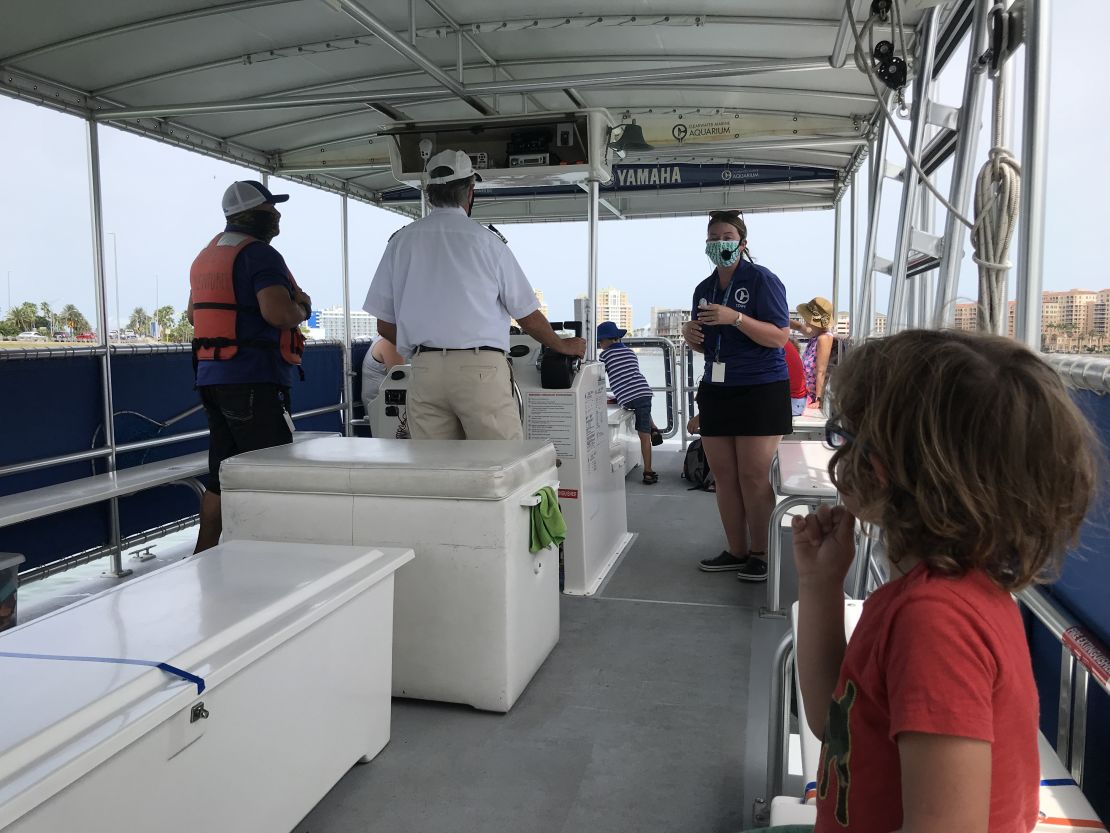
At the Clearwater Marine Aquarium, where visitors must reserve time slots in advance to maintain social distancing, we headed out on the open water aboard one of the aquarium’s boat tours into the Gulf of Mexico.
Everything was extremely well organized, with hand sanitizer stations everywhere you looked and the boats operating at half-capacity. Taped-off areas onboard indicated where you should stay with your group during the hour-long cruises to maintain proper distance.
The Florida heat, however, pushing into the 90s before noon, was a force nobody could reckon with.
“I’m from New Jersey and I’ve been wearing this since March,” a woman whose Lily Pulitzer dress matched her young daughter’s said to the captain, tugging on her face mask good-naturedly. “But this here’s a whole new level.”
Masks weren’t required once aboard the open-air pontoon boat, but almost all guests kept them on during the tour. And our face coverings did nothing to muffle the excitement later when a pod of Atlantic bottlenose dolphins passed under the boat.
Roughly a mile west on the powdery sands of Clearwater Beach, where signs remind visitors to maintain six feet of distance and a trolley’s marquee flashed a notice to wear masks on board, not everyone appeared to be getting the message.
At the oceanfront pool at the Wyndham Grand Clearwater Beach hotel, things felt nearly spring break-like, with crowds of maskless guests, mostly in their 20s and 30s, jostling in close proximity as a woman pushed an infant around the fray in a flamingo floatie.
I could already imagine a photo of a scene like this from Florida going viral and cringed at the thought. You couldn’t pay me to get in that water with so many people so close together. But the beach hardly looked any less packed on what was a typically busy summer Sunday, so I sat down for lunch at an outside table by the pool.
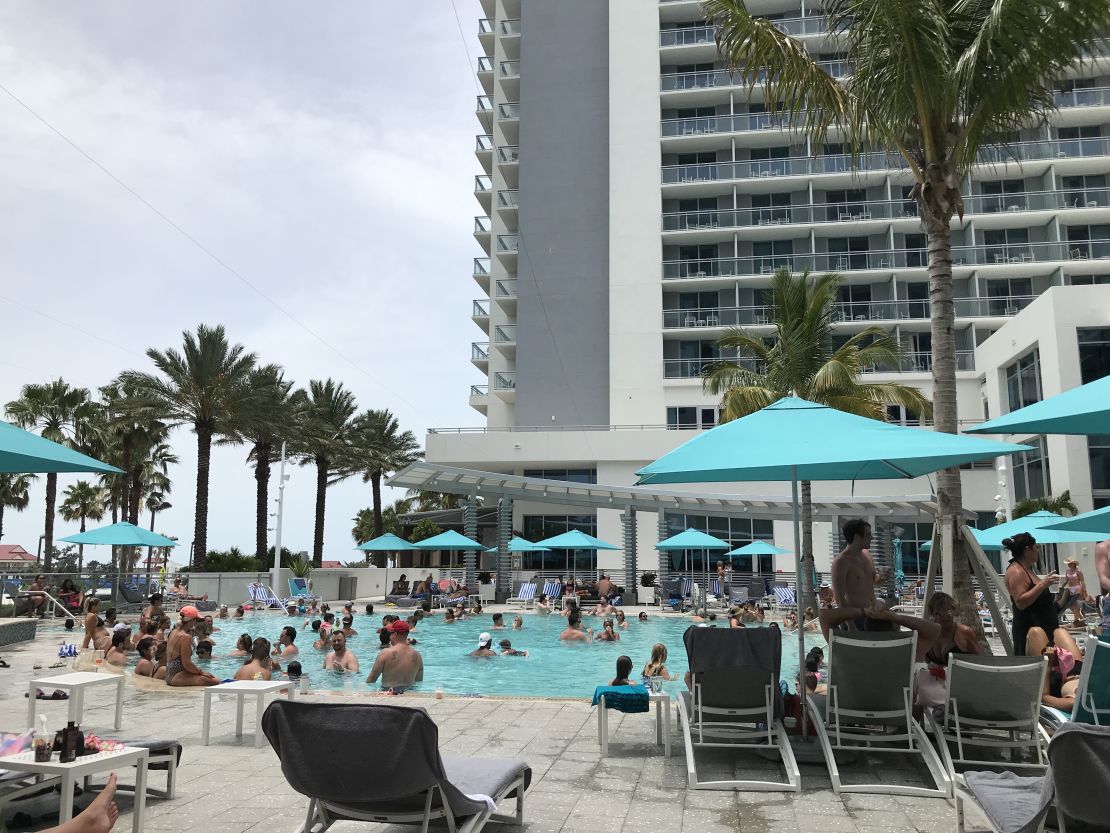
As I devoured a plate of crispy lemon pepper wings with my family, I was amazed by how “normal” everything looked (though the servers were all masked, most guests weren’t).
The hotel had all the precautions in place that have become standard these days – plastic partitions at check-in, mask-wearing staff, hand sanitizer stations at every turn and omnipresent signs encouraging social distancing.
Yet enforcement that day of new county guidelines was far from perfect. A 28-year-old tourist visiting from Virginia wasn’t wearing a mask inside the hotel, where a sign made it clear it was the law.
“It’s America, the land of freedom, and nobody can force anybody to wear a mask,” said the young woman, who didn’t want her name published. “If people don’t want to get in the elevator with me that’s fine. I’m very open-minded, but I shouldn’t be forced to wear a mask.”
A middle-aged man from Chicago, smoking a cigar outside the hotel, said he wasn’t concerned about being at a crowded pool during the pandemic. “It’s just a flu,” he said, also declining to give his name.
His wife, smoking a cigarette nearby, is a nurse back in Chicago and said she felt “worried” seeing so many people without masks – then she left to grab a beer and get back in the pool.
Again, I imagined a viral photo of a packed pool in coronavirus times and global tsk-tsking about bad behavior in Florida. To be fair, it should be noted that most of the partiers I encountered were from out of state.
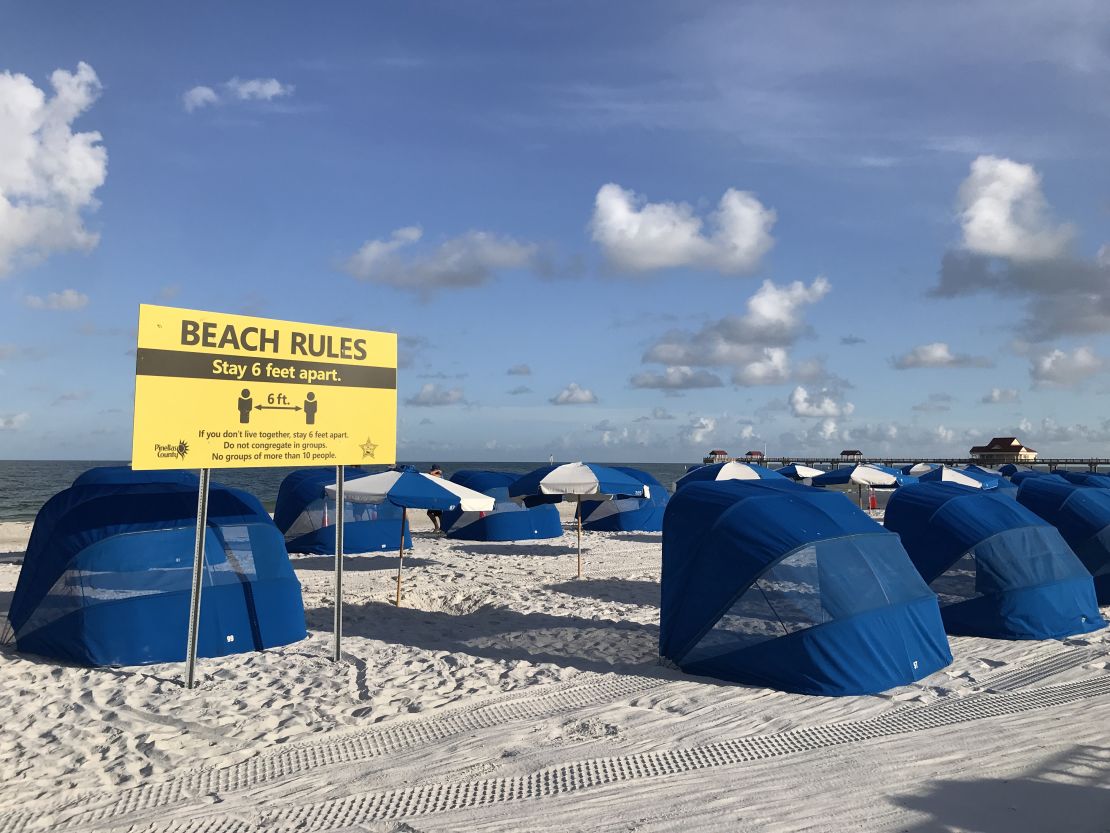
Mixed feelings in Islamorada
The blasé attitudes I encountered from many tourists in Clearwater were countered a week later by seemingly more stringent protocols and attitudes in the Florida Keys during Fourth of July weekend.
The archipelago linked by 42 bridges southwest of Miami experienced one of the strictest closures in the state on March 22, when the only road in and out was closed to visitors.
Since re-opening on June 1, the Florida Keys have enacted strict guidelines on wearing facial coverings in all public places with a roof (including tiki bars) and outdoors, too, when social distancing isn’t possible. (People have been stopped by police while walking on Duval Street for not wearing a mask).
In a place where half of the work force is employed in tourism-related jobs, the impact of the coronavirus has touched almost everyone.
“It was very, very empty in the Florida Keys during those months (of shut down),” said Andy Newman, media relations director for the Florida Keys & Key West Tourism Council. “But those of us in the tourism industry understood the situation. The good thing is we were able to maintain a relatively low infection rate.”
Like the rest of Florida, however, infections are now rising in the Keys, too.
As we drove through the islands, I felt plenty safe to stop for tacos al pastor from the masked workers at the Tacos Jalisco food truck in Key Largo. Banners and signs lining the road reminded visitors to wear a face covering inside all businesses and practice social distancing.
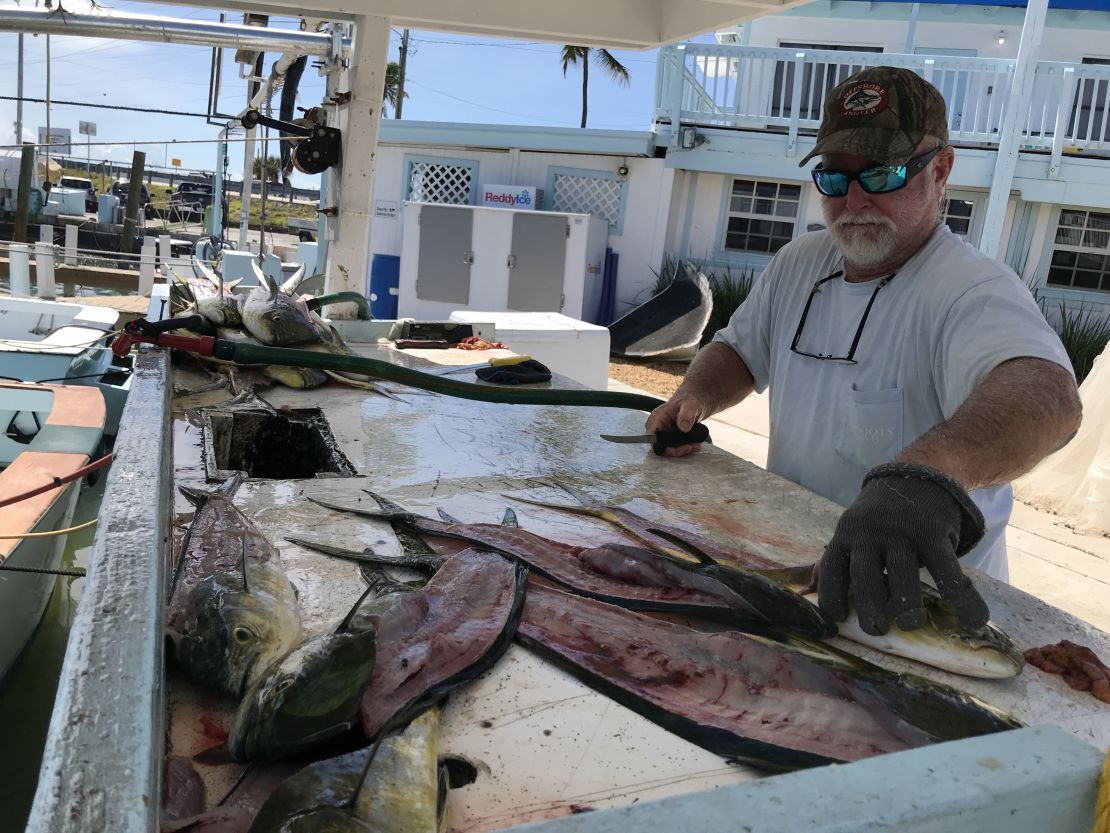
The parking lot at Robbie’s – a popular marina in Islamorada where you pay $4 for a bucket of fish to hand-feed enormous tarpon – was jam-packed. So we backtracked to Bud n’ Mary’s Marina, where the fishermen are usually happy to give you scraps from their catch and you can feed the tarpon for free, sans crowds.
There at the docks, Alex Adler, 62, the captain of the fishing charter boat Kalex was filleting flopping-fresh mahi caught on a trip to the Gulf Stream (23 miles away) with guests from Michigan.
“It’s certainly nerve-wracking,” Adler said of the state’s virus uptick, adding that his business had been doing well since the Keys re-opened, “There are just so many uncertainties. For the most part, people are being very precautionary, with masks on when they’re in close distance.”
“But you just never know. You could be pumping gas, passing somebody a chicken wing, somebody could sneeze…” he trailed off.
“We have to feed our families, but we’re going to have a different business down here,” he said. “Businesses are going to have cancellations, we’re going to have families who get the virus. It’s uneasy times for a lot of people.”
“Usually tourism is such a positive thing for us, but right now the feeling around it is kind of neutral,” added his daughter, Allie Adler, 17. “Half the people want the roads closed back down, and the other half with small businesses and family businesses want to stay open. It’s lots of mixed feelings.”
A socially distanced dive in Marathon
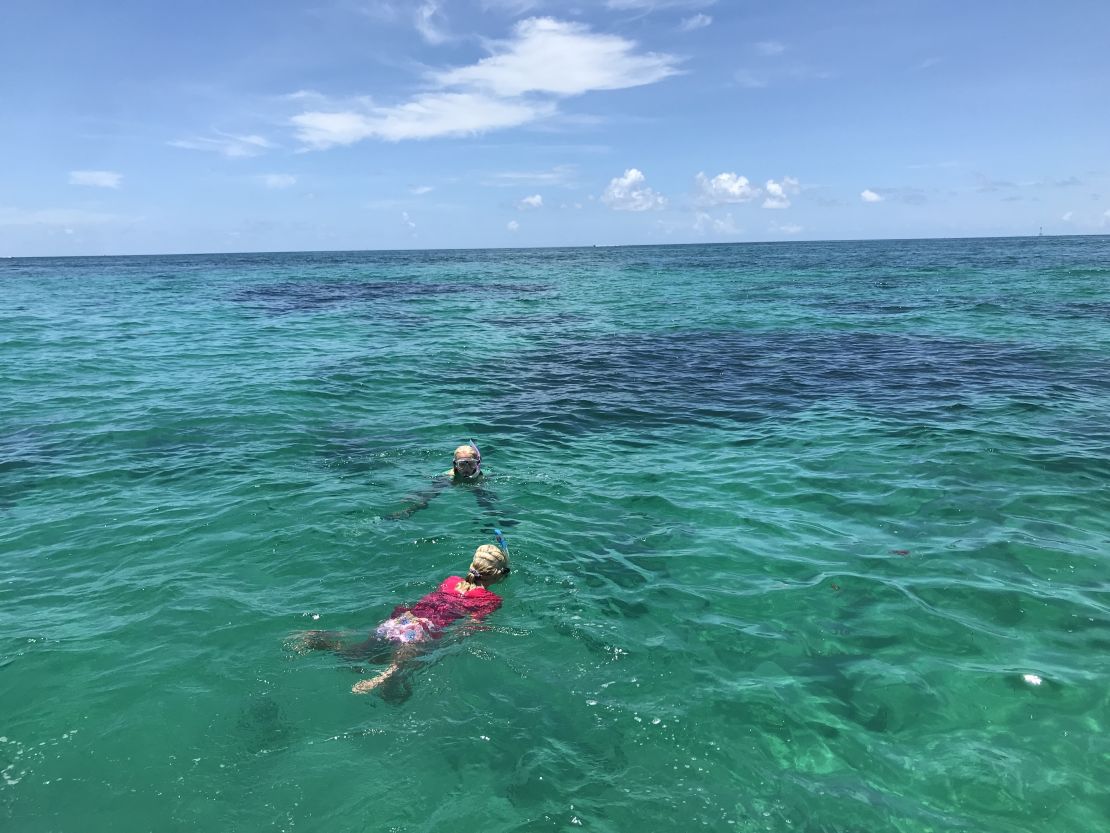
The feeling I found on July 4 was freedom – of the outdoor, socially distanced variety – on a scuba diving expedition with my two young nieces aboard a boat with Captain Hook’s dive shop in Marathon.
When it was time to enter the water, we swapped our face masks for dive masks and descended to the shallow reef, where we ogled nurse sharks and a hawksbill turtle munching a sponge.
Markers placed on a rope hanging off the boat showed snorkelers and divers where to hold on and maintain social distance in the water while waiting to climb back onboard.
Monica Wilson and Caden Carter, 23-year-old snorkelers from Melbourne, Florida, told me they had considered canceling their annual trip to the Keys, with virus cases soaring. But after inquiring with Captain Hook’s and other operators about safety measures (and landing a good deal on a beachfront condo where they could cook for themselves), they decided to drive down.
“I’m pleasantly surprised by how well they’re handling it down here,” said Wilson, noting masks being worn most places and good social distancing. Where the couple lives in Brevard County, near Cocoa Beach, she said, far fewer people were wearing masks. “Down here it seems like people are following the rules.”
Nearby, at the luxury Isla Bella Beach Resort in Marathon, a couple from Miami, Margina, 34, and Danny, 35, who didn’t give their last names, were relaxing on plush lounge chairs with water views, well removed from the hotel’s various pools and other guests.

Margina said they were celebrating their one-year wedding anniversary and feared that if they didn’t get out of the city now, they might miss the chance later if things locked down again.
“We walk to our room, take the stairs instead of the elevator and never run into anyone else here,” she said about the 24-acre resort with 199 oceanfront rooms that went for as high as $1,250 per night on the holiday weekend.
But for Parisian Julien Lee, 38, another guest at the resort who lives in Miami, missing amenities like stay-over housekeeping and full-service in-room dining (modified at Isla Bella as well as many other hotels to minimize staff contact with guests) were a bummer.
“I feel good, I feel safe, but it’s just a boring vacation because there are no services,” he said. “There’s nothing to do. You’re just buying a roof for the night and nothing else.”
Key West like you’ve never seen it
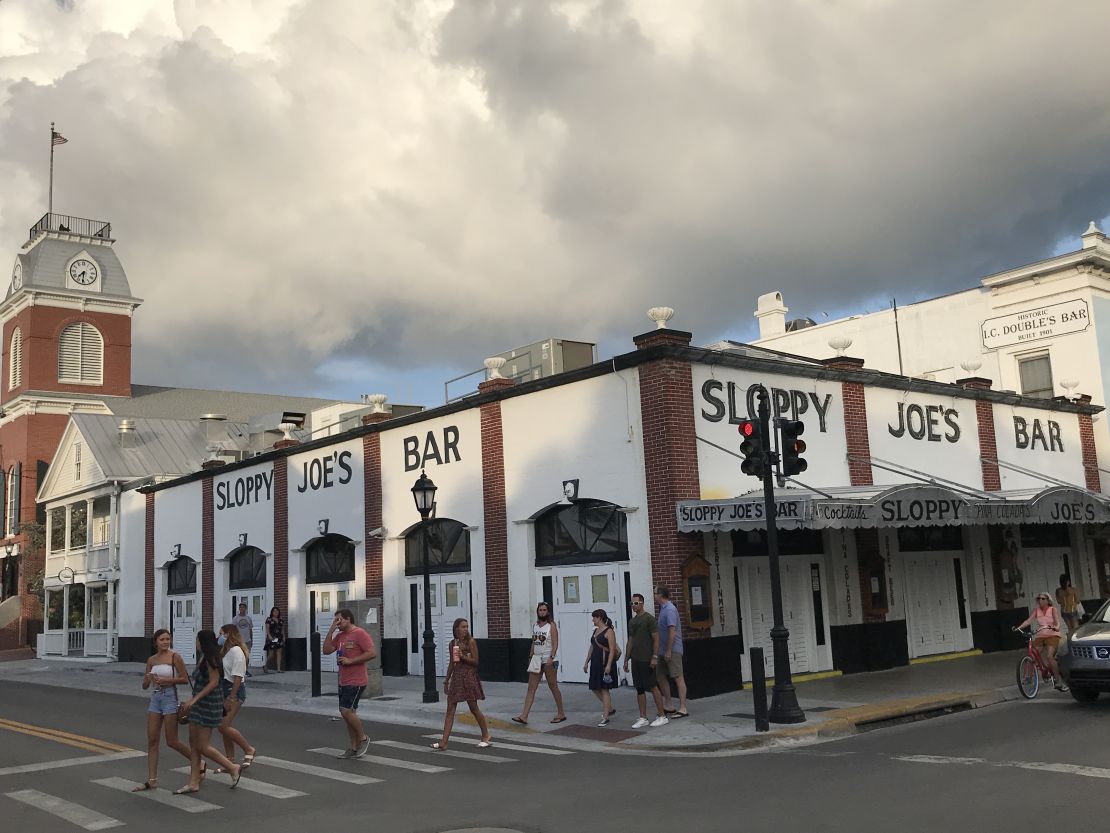
Some 45 miles southwest, at the end of US Highway 1 in Key West, it was easy to find a roof for the night, with “Vacancy” signs sprouting like weeds in front of guest houses and hotels.
Duval Street was a ghost town, with all of the bars in Florida closed indefinitely since June 26 per state mandate. Many of the tourist shops and restaurants were shut, too.
For a town where boat drinks are as much a part of life as getting out on the water, it was shocking to see Key West so sober.
Yellow caution tape stretched across the closed entrance to The Bull & Whistle Bar. And Sloppy Joe’s, which opened in 1933 on the day Prohibition was repealed and has hardly closed a day since, had its shutters pulled tight.
The Sunshine Apparel shop’s doors were open, and a few tourists browsed face masks emblazoned with “I survived the 2020 Coronavirus” and T-shirts quipping “Dr. Fauci is my homeboy.” A block away, the Red Garter Saloon strip bar had an apologetic sign saying: “Sorry, we’re clothed until further notice.”
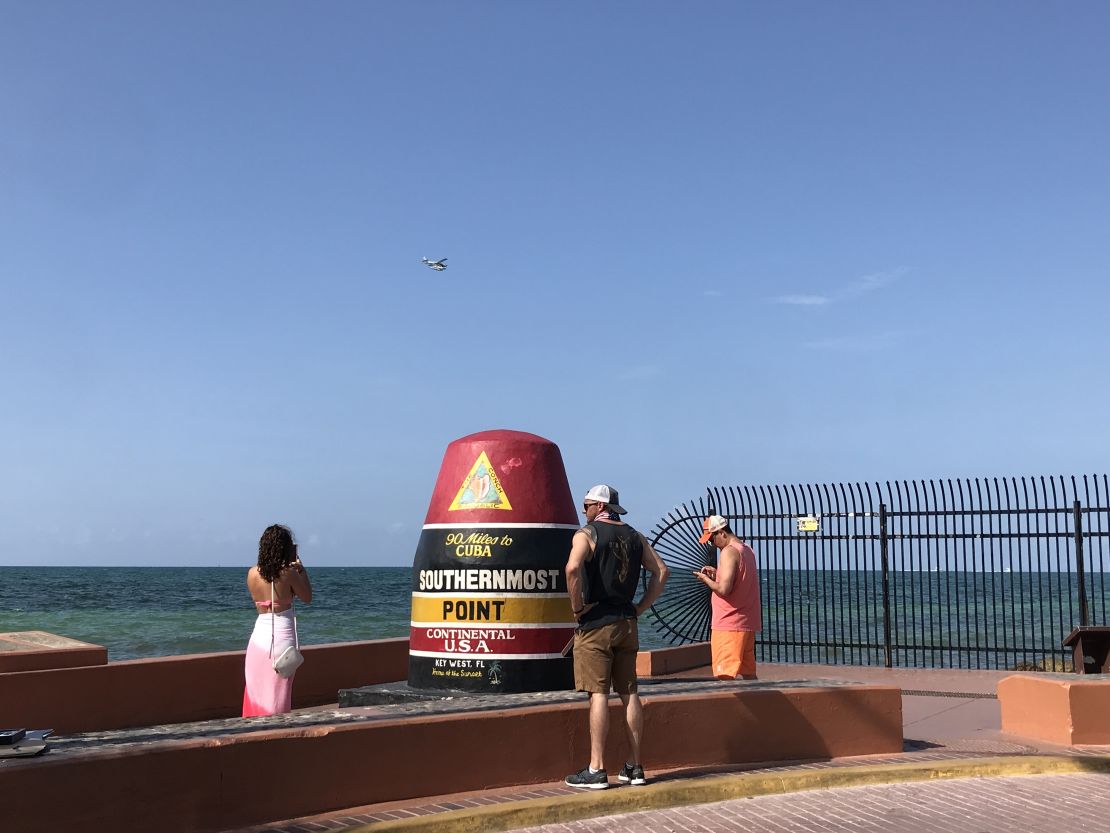
In a line that usually stretches far down the block, just three people were ahead of me at the Southernmost Point Buoy that marks 90 miles to Cuba.
That’s where I met Janette Perez, 54, from Fort Lauderdale, an outgoing brunette wearing an American flag mask and a hot pink tank-top that said, “My blood type is rum.”
“The reason I feel safe is because there aren’t many people here right now,” she told me. “If it was as full as it usually is here, though, I wouldn’t feel comfortable.”
Perez was last in a long line of tourists I talked to on vacation in Florida who were really like a microcosm of the nation itself – people just trying to enjoy their summers the best they could, interpreting the information they had in their own individual way and, more often than not, following the rules when there were rules to follow.
As dusk approached, I took my family to the nightly sunset pilgrimage spot at Mallory Square that usually draws tourists by the thousands.
The seawall was lined with people dangling their feet above the water waiting for sunset, even as the square itself was empty of its usual cast of quirky street performers as an extra precaution for the holiday weekend (though they’re back in action now).
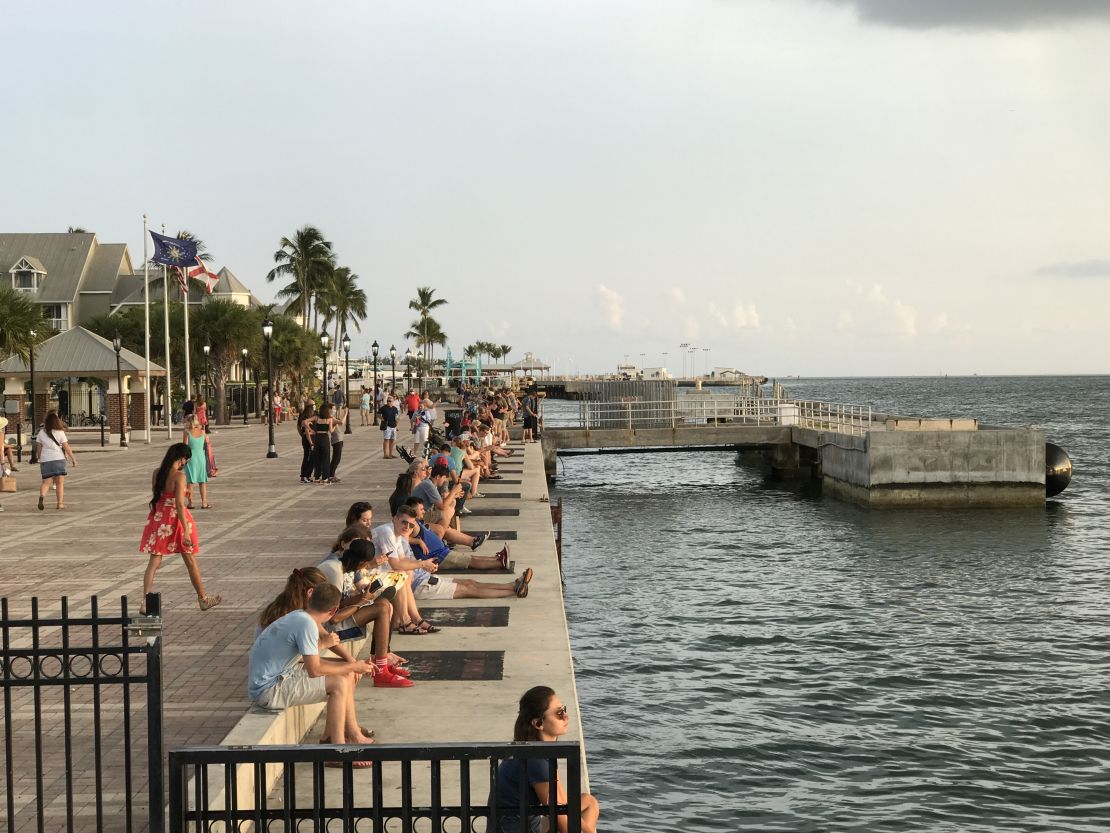
Next door, at the Sunset Pier Bar, nearly all of the colorful wooden tables were taken and a band played a mellow tune. Signs reminded guests to wear face masks if they got up from their tables.
Nothing was normal, but that didn’t make it bad.
I was with my family and the sunset was putting on a suitably subdued show near the horizon.
Revelers aboard a Fury sunset cruise offshore waved from the catamaran. Drinks, included in the ticket price, still flow onboard.
My husband and I sat for mahi mahi ceviche and Key West pink shrimp at an outdoor table overlooking it all at Hot Tin Roof. The kids even gave us a break by getting sucked into “Paw Patrol” on the tablet.
And I remembered what Sam Kelly – a transplant from Arizona who hawks sunset cruises and jet ski tours from an open-air stall on Duval Street – said to me earlier in the day.
“We miss the tourists. We miss the people. We miss the vibe of it,” she said. “People are making the best of it, but it’s strange.”
Terry Ward is a Florida-based freelance travel writer.


